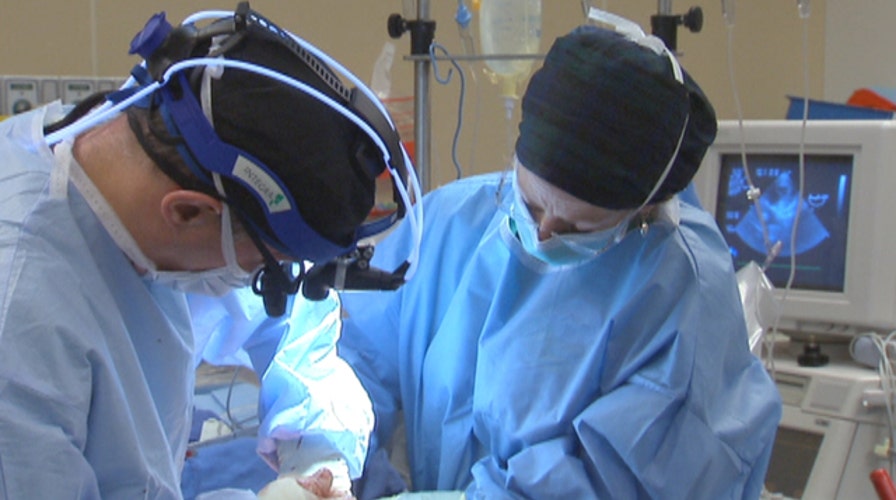New technology in the OR
A Johns Hopkins study shows that a foreign object is left inside a patient 39 times a week. Now surgeons are using new technology to insure that sponges and towels are removed from patients during surgery
During a 2006 surgery, doctors in Florida left surgical sponges inside 43-year-old Lenny LeClair’s bowels, which he said nearly caused him to die.
LeClair, from Claremont, N.H., lost 116 pounds, and the sponges perforated his colon.
“All the toxins, waste products was all through my body,” he said. “It was a month’s stay at the hospital, a coma for two week. It was a nightmare.”
LeClair described his stomach as “festering, bubbling and making noise.” He said it made wave-like movements that you could actually see.
A Johns Hopkins study finds a foreign object, such as a sponge, is left inside a patient’s body 39 times each week.
Patients often develop an infection and require additional surgery and treatment, like LeClair did.
Surgeons say they do use safety measures to ensure this doesn’t happen.
“Those measures range from counting instruments multiple times during the operation, counting sponges, having specific checklists - all of which are performed multiple times throughout the operation, much as they would be in the cockpit of an airplane,” said Dr. Robert Michler, surgeon-in-chief at Montefiore Medical Center in New York.
But now, surgeons in 260 hospitals across the country are adding a new technology to their safety toolbox: The R-F Assure Radiofrequency detection system puts a tracking device inside each and every sponge and towel in the operating room.
"By detecting them through a wand that receives a specific signal, we are able to know that a sponge is there or not there,” Michler said. “It's not just the body cavities that we worry about. Sometimes these sponges can be misplaced around the patient under drapes. We just want to keep track of everything."
Every patient undergoing surgery at Montefiore, which performs 30,000 surgeries a year, will receive this technology. It will cost the hospital approximately $12 per surgery – a price LeClair would have gladly paid.
“I wouldn’t want my worst enemy to go through what I went through,” he said.

